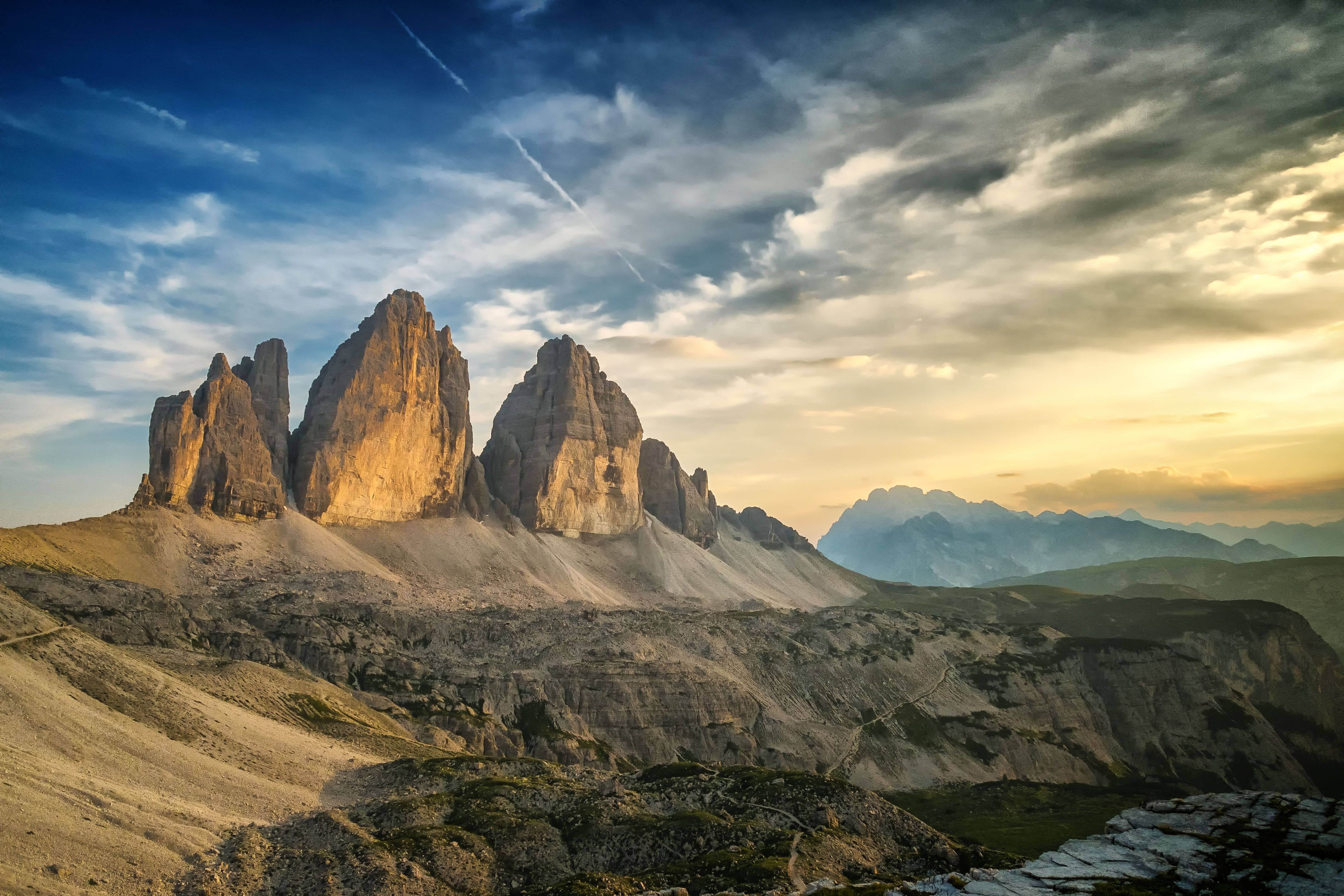
noun (used with a plural verb)
- a mountain range in N Italy: a part of the Alps. Highest peak, Marmolada, 10,965 feet (3340 meters).
noun
- a very common mineral, calcium magnesium carbonate, CaMg(CO3)2, occurring in crystals and in masses.
- a rock consisting essentially or largely of this mineral.
pl n
- a mountain range in NE Italy: part of the Alps; formed of dolomitic limestone. Highest peak: Marmolada, 3342 m (10 965 ft)
noun
- a white mineral often tinted by impurities, found in sedimentary rocks and veins. It is used in the manufacture of cement and as a building stone (marble). Composition: calcium magnesium carbonate. Formula: CaMg(CO 3) 2 . Crystal structure: hexagonal (rhombohedral)
- a sedimentary rock resembling limestone but consisting principally of the mineral dolomite. It is an important source of magnesium and its compounds, and is used as a building material and refractory
1794, named for French geologist Déodat De Gratet De Dolomieu (1750-1801) who described the rock in his study of the Alps (1791).
- A gray, pink, or white rhombohedral mineral. Dolomite occurs in curved saddlelike crystals with a pearly to glassy luster. It is a common rock-forming mineral. Chemical formula: CaMg(CO3)2.
- A sedimentary rock containing more than 50 percent of the mineral dolomite by weight.
 Liberal Dictionary English Dictionary
Liberal Dictionary English Dictionary